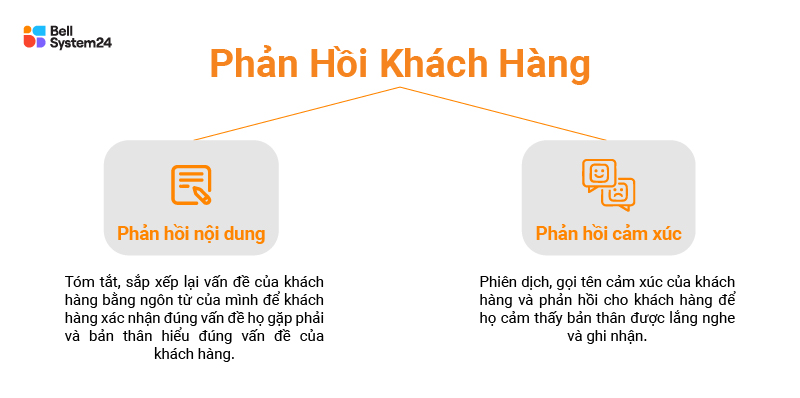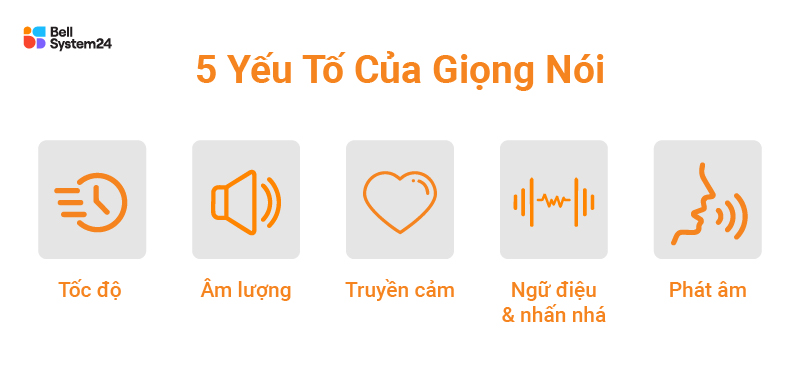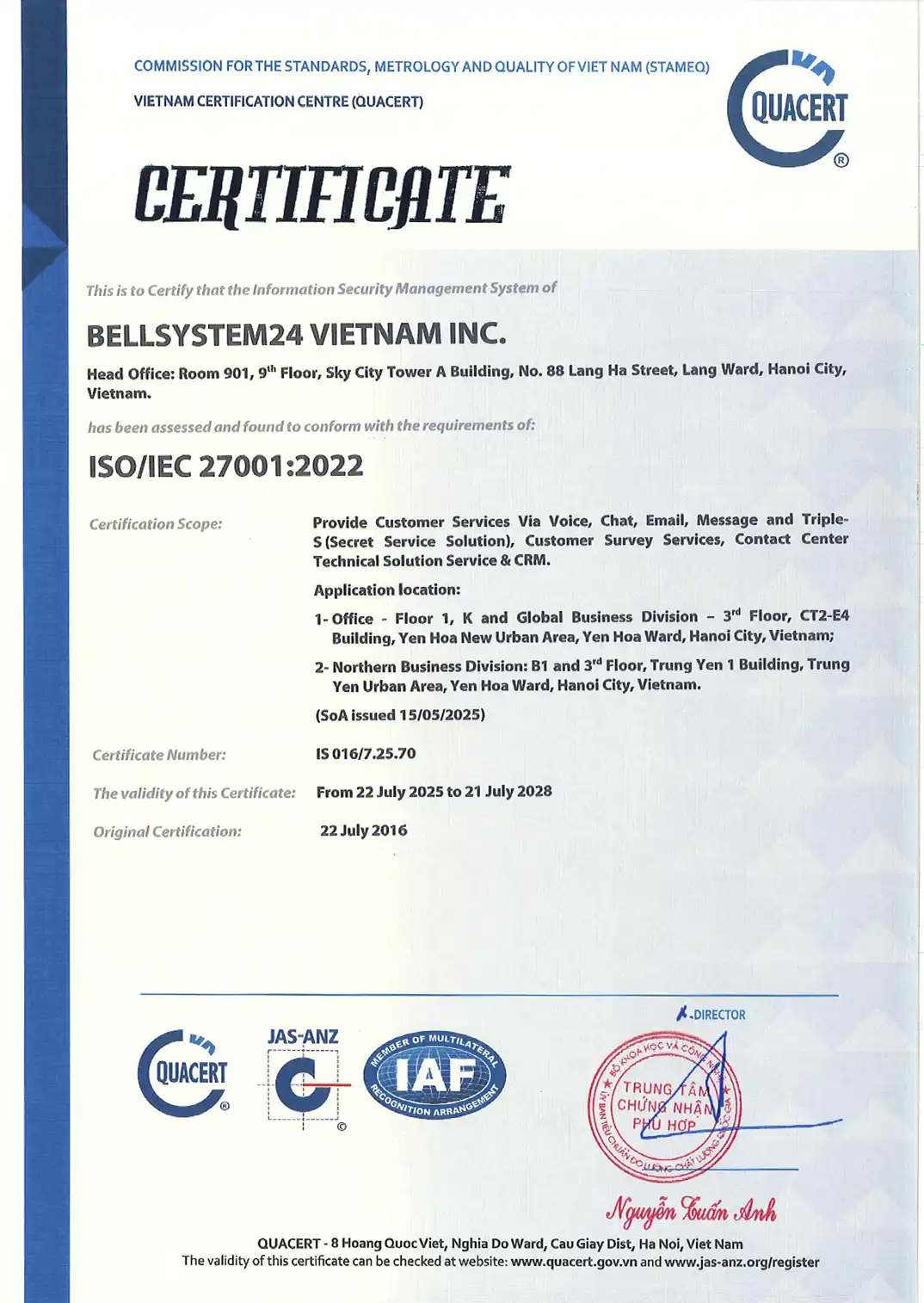Telesales (telephone sales) is a common form of sales in many businesses today. Every day, telesales employees must make hundreds of calls to potential customers, which means that the workload and pressure of this job are very high. Therefore, in addition to diligence, telesales employees must master the necessary skills if they want to be highly effective in their work. Below are the essential telesales skills.
Important notes before you begin
Before practicing the skills, telesales staff must be able to answer the following questions:
- Do you have a deep understanding of the products and services?
- Do you have a clear understanding of your potential customers, who they are, what they need, and what their pain points are?
- What is the unique selling point (USP) of the product or service compared to competitors?
- Have you prepared yourself mentally and developed the patience to always maintain a positive attitude toward customers?
If everything is ready, let's get started!
Professional telesales skills
1. Communication skills
This is a core skill that determines success in telesales. In a telephone communication environment, effective communication skills help employees make a good impression on customers, build trust, and increase the likelihood of closing sales. This skill can be broken down into the following smaller groups.

1.1 Initiating a call
Opening skills can be likened to the 'gateway' in telesales. Therefore, building Effective telesales script is extremely important.
You have to impress customers within the first 5 seconds.
Customers often decide whether to stay on the line or hang up within the first 5 seconds, so time is of the essence. A clear, engaging greeting will help make a good impression on customers. Briefly introduce yourself, your company, and what customers can expect to gain from this call.
1.2 Listen to customers
Only by truly listening can you empathize and wisely come up with appropriate solutions to persuade customers. Many telesales representatives often struggle with this skill because they focus solely on rushing through the sales process and overlook the issues customers are facing. Therefore, telesales representatives need to practice empathetic listening skills.
Empathic listening is the skill of attentive listening and interaction aimed at understanding the speaker's emotions, alongside their ideas and thoughts.
Practice:
Combine the five elements of THÍNH: HEART – EAR – EYE – KING – ONE

- TÂM – Put yourself in the position and perspective of each Customer
- NHĨ – Focus on "listening" to the emotions of customers and yourself
- LABEL – Focus entirely on the conversation, do not get distracted.
- VƯƠNG – Respect, do not judge or give advice
- UNITY – Combining the unity of Mind, Ear, Eye, and King
After understanding the issue the customer is facing, respond to the customer.
1.3 Effective customer feedback
Feedback is repeating what the customer just said, what the customer feels, or clarifying what the customer wants to say and gaining the customer's approval.
In telesales, effective listening and response skills not only increase the likelihood of successful sales, but also demonstrate the employee's respect for the customer, contributing to enhancing the brand image.

Example: Customer information mining staff
- A: Ms. B, I'm a little curious. Do you currently have any health insurance plans, or do you mainly rely on your employer's health insurance?
- B: I only use health insurance, but I'm also considering purchasing private insurance because medical costs are rising.
- A: Yes, I understand, healthcare costs are indeed a concern. Have you decided on a plan yet, or are you still considering your options?
- B: I'm looking into it, but I don't want to pay too much for benefits that aren't worth it.
- → Listening skills: A does not interrupt, focuses on acknowledging the customer's opinions.
- → Response skills: Ask open-ended questions to further explore the customer's needs and desires.
Feedback formula

1.4 Using Voice
If communication skills are likened to a sword, then the voice is considered its sharp blade. Unlike direct sales, in telesales, customers perceive the message conveyed through the voice.
An effective voice is not just sound, but also conveys confidence, emotion, and professionalism. By adjusting tone, intonation, and speaking speed appropriately, telesales staff can optimize their communication skills.
The components of speech

Speed: The ideal pace is moderate and clear, incorporating natural pauses so that customers can absorb the information.
Volume: Speak loud enough for customers to hear easily, but not so loud that it bothers them. Adjust the volume based on customer feedback and the surrounding environment.
Inspiration: Use an appropriate tone of voice. A confident, articulate tone conveys professionalism and reliability. A gentle, emotional tone creates warmth and closeness.
Intonation: Avoid monotonous, repetitive speech. Vary your tone to create impact. For example: Emphasize promotional information and unique selling points.
Pronunciation: Pronounce words clearly and distinctly, without using a strong regional accent (except in certain cases).
2. Customer reading skills
In "The Art of War," there is a saying: "Know your enemy and know yourself, and you will fight a hundred battles without danger." Similarly, in sales, when we understand the psychology and unique characteristics of each customer, persuading them becomes more effective, especially with difficult customers.
See details: Skills in caring for and identifying customer psychology and personality
3. Customer information gathering skills
During communication, telesales staff need to gather sufficient information to accurately identify the issues customers are facing. In addition to the information shared by customers, it is necessary to proactively seek out additional important data in order to persuade customers in each specific situation.
6 Types of Questions to Gather Customer Information

4. Flexible handling skills in various situations
Telesales representatives will interact with many customers who have different personality traits and needs, so it is impossible to apply a single standard to all customers; instead, flexibility and adaptability are required. This skill requires practice and real-world experience.
Applying D.I.S.C analysis to communication situations.
| Personality group | Recognition | Communication characteristics |
|---|---|---|
| D – Dominance | Loud, fast voice Strong language, easily hurtful Make a direct request Conservative, quick-tempered | Quickly, thoroughly, address the issue directly Soft, flexible Do not interrupt the customer Express agreement with the customer's viewpoint |
| I – Influencing | Voice affected by emotions Talkative, rich in vocabulary Communicate by telling stories and sharing Express your feelings | Listen to customers Responding to customer feedback Respond to customer feedback Express agreement |
| S – Cooperation (Stabilizing) | Gentle, polite voice Speak less Easy to agree, compromise Weak resistance | Proactively share the situation encountered by customers Specific solution orientation Reassure, empathize Genuine concern |
| C – Diligent (Cautious) | High demands on logic and detail Often refers to numbers: deadlines, number of calls, specific times, etc. Requires precision in terms of language, process, and commitment. Often ask why questions or ask counter questions | In-depth knowledge and expertise Fulfill commitments to customers Provide a thorough solution, clearly step by step Monitor and promptly notify customers of any issues that arise. |
5. Closing skills
Closing the sale is the final and most important step in the telesales process. To achieve this goal, employees need preparation, tact, and the ability to handle situations flexibly.
Three factors that must be achieved to close a sale successfully include:
- Ensure that customers fully understand the information and unique value of the product.
- Customers are understood and find agreement.
- Build customer trust, break down psychological barriers, and answer all questions.
Skills that increase closing rates:
- Ask leading questions and guide customers toward making a purchase.
- Highlight benefits, promotions, and after-sales service.
- Create a sense of urgency, a time limit.
- Customize solutions for customers.
- Handle customer rejections tactfully.
6. Handling rejection skills
In telesales, customer rejection is inevitable. However, skillful rejection handling can turn a negative situation into an opportunity to re-persuade customers and build long-term relationships.
See also: How to handle customer rejection tactfully
7. The skill of maintaining positive emotions
Positive emotions in sales are positive reactions to issues that arise during communication with customers. These emotions can create a pleasant and satisfying experience for customers, helping to increase the likelihood of successful sales. In addition, maintaining positive emotions helps call center agents avoid transferring emotions from one call to another.
How can you maintain positive emotions?
Thinking:
Put yourself in the customer's shoes – Focus on the issue, not the person "It's not you" – Think positively – "Thank goodness..."
How to control emotions from Japan:
Step 1: Take two deep breaths, focusing on the sensations and emotions you want to control.
Step 2: Breathe out gently and try to clear your mind/think about something positive.
Step 3: Exhale slowly, gradually pushing negative emotions/thoughts out of your mind.
8. Planning and time management skills
Making a large number of calls in a short period of time requires employees to have the ability to plan and manage their time effectively. By setting clear goals, prioritizing tasks, and breaking down work into specific stages, you can ensure that the workload is completed, improve efficiency, and reduce pressure.
9. Self-learning skills
Always cultivate self-learning skills, continuously improve work efficiency, and develop your career. In a telesales environment, where competition is fierce and change is constant, the ability to self-learn helps employees adapt and enhance the necessary skills.
Some self-study suggestions:
- Search and learn from reputable sources and specialized materials.
- Listen back, analyze, and learn from calls
- Conduct periodic evaluations and set new goals in the workplace.
- Take notes and make adjustments based on customer feedback
- Continuous practice and experimentation.
Conclusion
Telemarketing skills are a decisive factor in the success of telephone sales. To achieve high effectiveness, telemarketing staff need to master skills such as communication, listening, responding to customers, using their voice, and handling situations flexibly. By equipping yourself with these skills and continuously improving through self-study, you will be able to win over customers, increase your closing rate, and maintain a positive attitude throughout the entire work process.
Leading telesales service in Vietnam
With experience operating call centers since 2006, we have implemented hundreds of campaigns. telesales Successfully serving major brands such as Viettel, VTVcab, UOB, K+, PVI Insurance, Abbott, California Fitness, etc. Contact us today for a consultation on our solutions.







